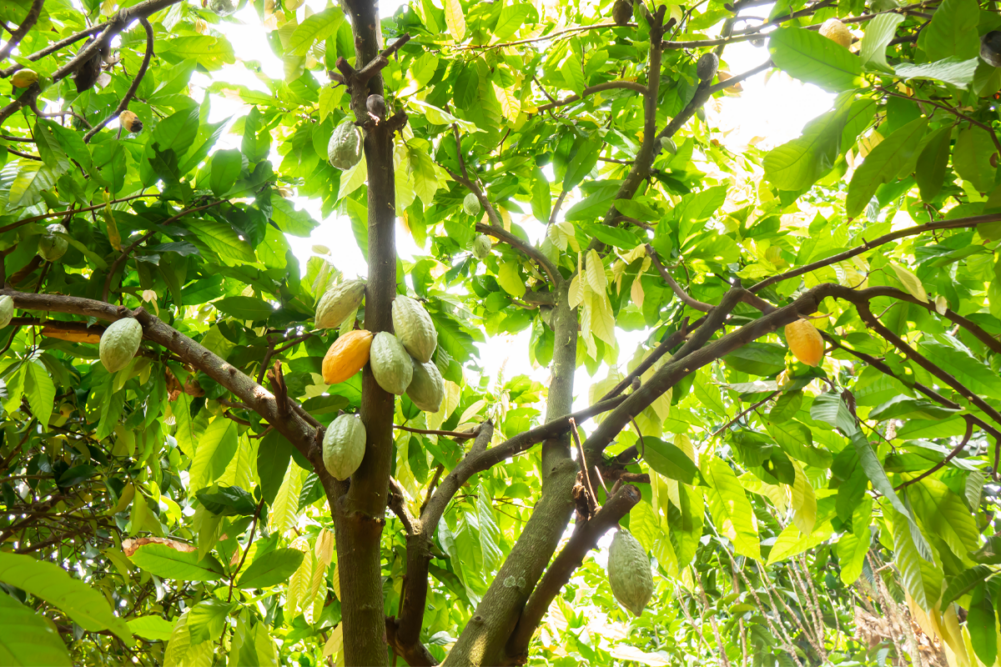CHICAGO — Almost four years after making improved cocoa farmer prosperity a pillar of the company’s cocoa sustainability strategy, Mars Inc. has shared outlines of a plan the company said will help it achieve its objective.
The company said two programs will be launched with the aim of helping put 14,000 smallholder cocoa farms in Ivory Coast and Indonesia “on a path to a sustainable living income in the next eight years.”
The programs were developed in consultation with cocoa farmers and tap into lessons Mars gleaned from the Shubh Mint Project, a program that successfully boosted incomes of mint growers in India.
Mars said it will use findings from the new programs in Ivory Coast and Indonesia to “create a blueprint of interventions that Mars can scale across the cocoa supply chain.” Globally about 5 million farmers rely on cocoa for their livelihoods.
While many ways to improve cocoa farmer livelihoods have been proposed and studied, truly effective and sustainable solutions have been elusive, Mars said.
“We are aiming to crack the code on a sustainable living income for cocoa farmers to enable them and their families to thrive for generations,” said Barry Parkin, chief sustainability and procurement officer at Mars. “Efforts to improve farmer livelihoods based on stopgap measures or single issues in isolation will not create the change that is required. Farmers may understand what needs to be done to improve their crops and their livelihoods but might not have the market support to make those changes. In this new effort, we are committing to help remove the obstacles in their path, particularly lack of access to finance and the need to adapt to climate change.”
The Farmer Income Lab (FIL), described by Mars as “think-do” tank founded by the company, reviewed more than 1,500 studies describing and evaluating common interventions to increase farmer income. The FIL review discovered only three interventions raised incomes by more than 50% and could be sustained over time.
Mars said it would apply the findings in a new “test-and-learn approach that combines best-practice interventions to unlock the entrepreneurship of farmers, diversify income streams, and improve productivity to enhance farm resilience and accelerate incomes, with the aim of scaling successful measures more widely.”
The company said most cocoa today is grown on small family farms with scant access to electricity, clean water, reliable roads, or quality schools. The negative effects of climate change have compounded challenges farmers face as have market failures, a lack of access to formal financial systems, unsustainable prices and a lack of alternative income sources to serve as a buffer against market volatility.
“These obstacles can leave cocoa farmers in poverty, unable to invest in or grow their businesses due to factors beyond their control,” Mars said. “Despite past industry efforts to improve farmer livelihoods, the unfortunate reality is that smallholder farmer poverty has not been eradicated.”
In developing its programs, Mars said it will work with numerous organizations, including Fairtrade, the US Agency for International Development (USAID), Institute for Development Impact (I4DI), and ECOOKIM, a Fairtrade Cooperatives Union that Mars has sourced from for several years. The company said it believes its initiative will be “the industry’s most comprehensive effort to date designed to address persistent barriers to cocoa farmers’ ability to achieve a living income.”
The FIL research has guided Mars to ensure programs go “beyond selective, short-term interventions which are not fully effective at achieving sustainable change.” Instead, the company said long-lasting systemic change will be pursued through bundle interventions such as providing access to financial tools, including below-market loans and mobile banking, agroforestry practices to address both climate change mitigation and adaptation, and income diversification measures — to address barriers to achieving a living income.
Mars said it was important to customize approaches to meet farmers’ unique needs rather than imposing a “one-size-fits-all” approach. Other steps to be pursued include strengthening farmer cooperatives and market access and prioritizing “long-term, equitable sourcing to provide financial security.”
The company said the Shubh Mint project will be the source of what Mars hopes will be “key learnings.” Under the project aimed at boosting incomes for mint growers in Uttar Pradesh, India, farmers have seen incomes rise more than 250% while the cost of mint production has fallen by more than 20%, Mars said.
The mint program includes interventions such as training farmers on Good Agricultural Practices; establishing four self-sustaining Farmer Producer Companies; and engaging over 8,000 women through women farmer groups and self-help groups.
“Mars intends to forge new approaches and share its findings — including what works, and what doesn’t — to help the wider industry collectively leapfrog challenges, achieve solutions that drive systemic change, and define a sustainable path toward a living income,” the company said.
The plans for the Ivory Coast and Indonesia projects come five years after Mars announced a “Sustainable in a Generation” plan and four years after the company announced two pillars for the plan. The first pillar was “Responsible Cocoa Today” and was aimed at ensuring that by 2025 all of its cocoa was responsibly sourced globally and traceable. As part of the pillar, the company said it would pursue systems to address deforestation, child labor and higher incomes for farmers.
For the second pillar, Mars said it hoped to demonstrate that a step-change in farmer income and livelihoods would be possible. The company said at the time it would test ways to increase productivity, income, resilience and overall sustainability through crop and income diversification, gender programs, village and savings and loan models and farm development plans.




